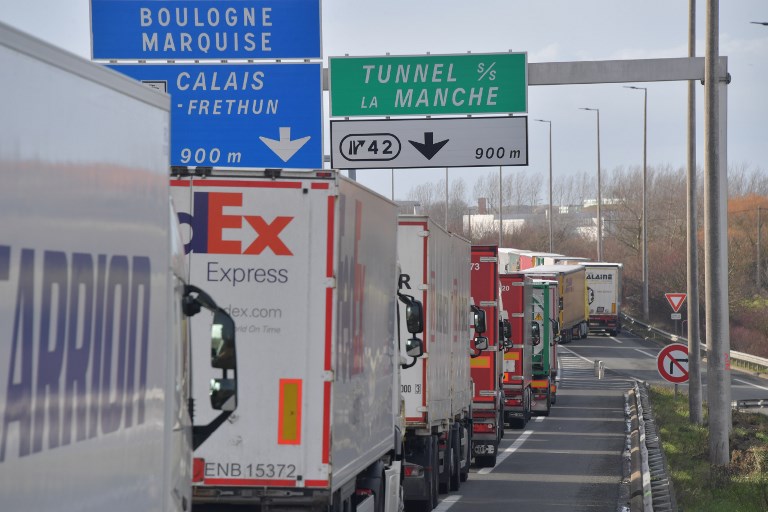The future EU-UK relations

Business Europe | 6 February 2020
The future EU-UK relations
I. Introduction
Brexit challenges the complex supply chains and close-knit partnerships that European and British companies were able to establish over the past decades thanks to the European Single Market and the free-trade agreements (FTAs) concluded by the EU with the rest of the world. Keeping the EU-UK future economic relationship as close as possible whilst preserving the integrity of the Single Market and a level playing field is thus a central concern of the European business community.
All existing EU FTAs with third countries result from different preferences and choices and there is a certain scope for creativity. It is clear, however, that a disruption in the balance between the rights and obligations of cooperation is unacceptable to both the EU and the European business community. Looking at existing models, one can therefore distinguish between two fundamentally different approaches : market integration and trade liberalisation1.
The European Single Market with its free movement of goods, services, capital and people follows the market integration approach. The abolishment of border controls is possible only through the harmonisation and convergence of domestic legislation necessary for mutual recognition on such a scale. Another condition is the participation of its member countries in the EU’s legal system, ensuring that EU Treaty rules and EU legislation are an integral part of their domestic ones and prevail in case of conflict. Moreover, a number of flanking policies – such as competition and state aid policy, common environmental, consumer protection, and social policies or the opening of government procurement to prevent government purchases to favour domestic companies – are required to establish a level playing field.
By contrast, the trade liberalisation approach, as evidenced by CETA (the EU-Canada Comprehensive Economic Trade Agreement), the EU-Japan Economic Partnership Agreement and other FTAs, aims at facilitating international economic exchanges from a trade perspective without harmonising product and market regulations to a similarly significant extent as the Single Market. Whilst tariffs are reduced or eliminated, rules of origin apply and non-tariff barriers to trade are tackled to a much lesser extent. Especially for services trade, liberalisation in FTAs is very limited when compared to the Single Market as here barriers predominantly result from divergences in domestic product and market regulations. Although the EU’s new-generation FTAs contain comprehensive chapters on competition, environmental protection, social policies and other flanking policies, these chapters merely establish minimum standards rather than harmonise legislation. As a result, many non-tariff barriers remain and border checks are necessary to ensure the compliance of traded goods with domestic legislation.
As an FTA cannot provide the same level of frictionless trade as a customs union, nor a similar level of regulatory alignment as staying in the Single Market, choices will have to be made, particularly in the UK between regulatory independence and maintaining comprehensive access to the EU market. For the European business community, it is important that the current level of frictionless market access for trade and investment be maintained as much as possible. EU-UK trade must remain tariff and quota-free and non-tariff barriers must be minimised, including through the continuous mutual recognition of technical and regulatory standards, where possible. Regulatory cooperation will be crucial to ensure minimum disruption. In this context, EU regulatory agencies play a critical role. Whilst full participation in a number of EU agencies is conditional upon membership in the EU Single Market, BusinessEurope would encourage UK participation, and strong cooperation and continued exchanges of expertise and information between EU and UK agencies in a structured format, where possible. The conditions of UK participation should be determined on an ad hoc basis, in line with the rules of the respective agencies and respecting the interests of other third- country members.
It must be kept in mind, however, that the existing situation is based on the UK’s membership in the Single Market with its balance of benefits and obligations. When the UK leaves this framework, the risk that its future policies distort competition will increase. It is therefore necessary that the future agreement establishes the right balance between rights and obligations in order to safeguard a level playing field, with appropriate safeguard measures in place in case of non-compliance. Here, especially competition policy, including taxation and state aid, is highly relevant and needs to be adequately addressed, alongside a high level of environmental, safety and other standards. Most importantly, the integrity of the Single Market must be preserved while ensuring the closest possible future relationship between the UK and the EU.
Moreover, it is of utmost importance for companies that the transition period is used as efficiently as possible in order to finalise, ratify and implement the agreement on EU-UK future relations. If it becomes evident that the initial transition period is insufficient to achieve this, both sides should agree on a prolongation of the transitional period, which must be adequately long as the Withdrawal Agreement only allows for this once. It should be avoided that businesses have to adapt twice to changing framework conditions as this would cause huge costs.
This paper seeks to provide a basis for informed discussions on the EU-UK future relationship by shedding more light on what the European Single Market actually offers in key areas and juxtaposing it to what existing FTAs can offer, then setting out the priorities of the European business community for future EU UK-relations. The first chapter sets out issue areas that are usually covered by recent EU FTAs2 while the second chapter focuses on issues that go beyond existing FTAs3.
Read the full position paper (pdf)





